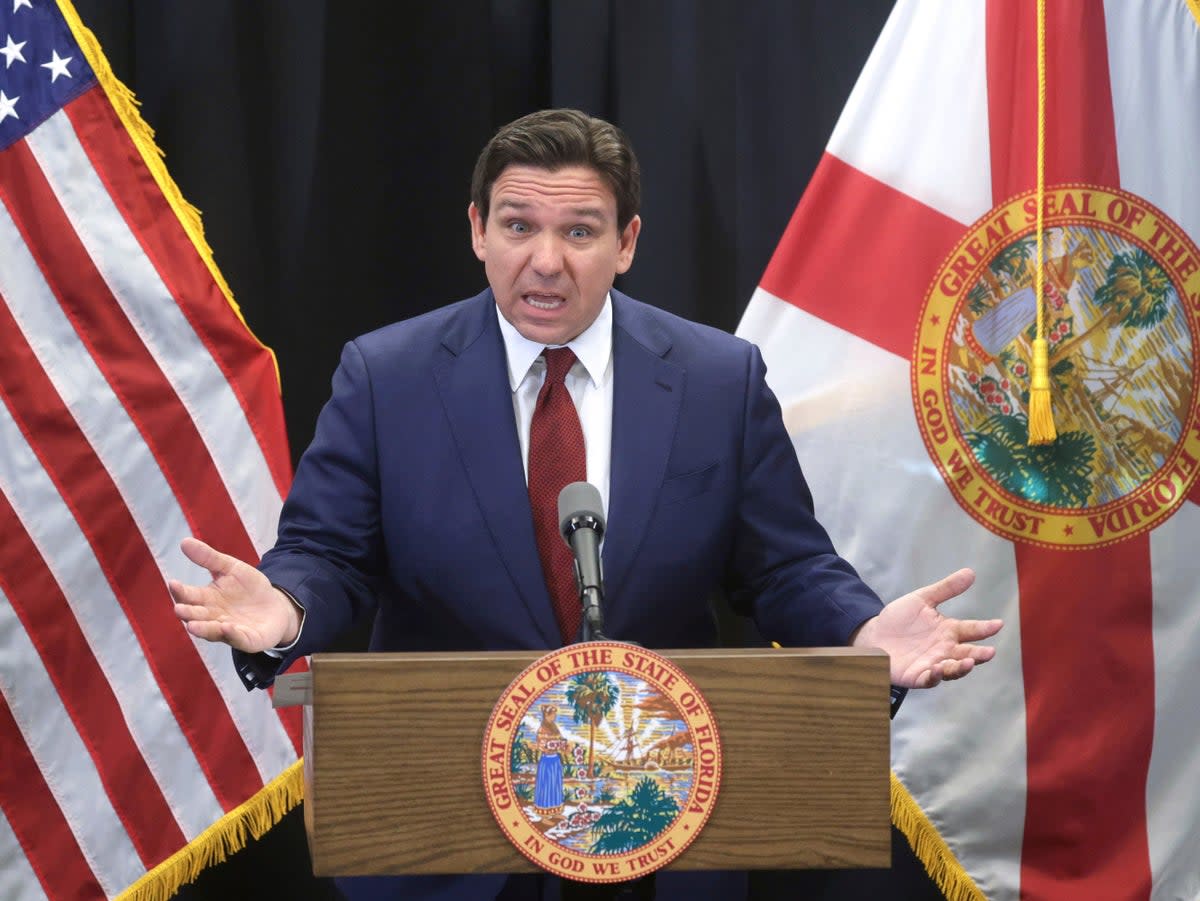Florida supreme court allows six-week abortion ban but says voters will decide issue in November

Abortion rights will be on the ballot in Florida this November, the state’s Supreme Court said in a highly anticipated ruling on Monday.
Just hours before the 1 April deadline, the panel of seven justices – all appointed by Governor Ron DeSantis – said that a proposed constitutional amendment to protect abortion should be put to voters this November.
At the same time, however, the judges overturned more than three decades of precedent to uphold the ban on abortions after 15 weeks of pregnancy, which was signed into law by governor Ron DeSantis in 2022.
That will mean a more restrictive law signed last year, which bans nearly all abortions after six weeks, will now go into effect – until and unless voters choose to overturn it.
In addition to the abortion vote, Florida voters will also cast their ballot against or for removing criminal and civil penalties for those 21 years or older who use marijuana.
“I applaud the Florida Supreme Court’s decision today to allow a ballot initiative protecting abortion rights in the Sunshine State,” said Florida congressman Jared Moskowitz, a Democrat, on Monday.
“Everyone deserves the right to make their own healthcare decisions, and this referendum gives women the opportunity to voice that opinion.”
His colleague Maxwell Frost, who represents most of Orlando, likewise said: “There’s so much at stake, we can’t stay home on 5 November.”
I applaud the Florida Supreme Court’s decision today to allow a ballot initiative protecting abortion rights in the Sunshine State. Everyone deserves the right to make their own healthcare decisions, and this referendum gives women the opportunity to voice that opinion.
— Congressman Jared Moskowitz (@RepMoskowitz) April 1, 2024
There you have it Florida! Abortion rights and adult use marijuana are going to be on the ballot this November. There’s so much at stake, we can’t stay home on Nov. 5th. https://t.co/SXXQCRAOtr
— Maxwell Alejandro Frost (@MaxwellFrostFL) April 1, 2024
Anna Eskamani, a Democrat serving in the Florida state legislator, said the new six-week abortion ban would be “devastating”, but said she was “confident that the tide will turn” this November.
Conversely, Florida’s Republican attorney general Ashley Moody praised the court’s ruling on abortion rights while criticising it for allowing a “vague and misleading” constitutional amendment on the ballot.
“We have argued from the beginning that these new constitutional initiatives will mislead voters. We maintain that it will be an uphill battle to educate them. However, we respect the court’s decisions,” Ms Moody said.
The proposed Amendment 4 would protect Floridians’ right to an abortion up until the point of “viability” – or the point at which a fetus could survive outside of the womb, largely considered to be around 24 weeks.
We appreciate the court revisiting its precedent on Florida’s right to privacy and returning the meaning of that amendment to the voters' original intention.
That decision outlines the difficulties and divisiveness of allowing vague and misleading initiatives on the ballot. We…— AG Ashley Moody (@AGAshleyMoody) April 1, 2024
Today the Florida Supreme Court issued three out of calendar opinions, including one that approves Florida's 15 week abortion ban.
This means that in 30 days Florida will see a 6 week abortion ban go into effect.
Here is Representative Eskamani’s statement in response. pic.twitter.com/x8uiccc6VM— Rep. Anna V. Eskamani ?? (@AnnaForFlorida) April 1, 2024
The amendment received around 1.5 million signatures from Florida voters, which was more than enough to put both on the 2024 ballot, and must now win at least 60 per cent of the vote in order to become law.
Ms Moody had challenged the amendment by claiming that the language of “viability” was vague and deceptive.
The law, she argued, was designed to “lay ticking time bombs that will enable abortion proponents later to argue that the amendment has a much broader meaning than voters would ever have thought”.
Chief justice Carlos G Mu?iz appeared sceptical of that argument, saying in February: “The people of Florida aren’t stupid – they can figure things out. People can see for themselves whether it’s too broad or vague.”
